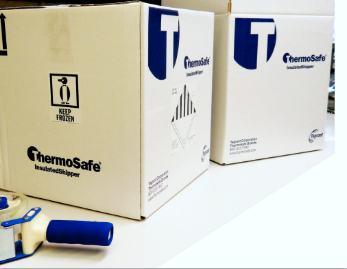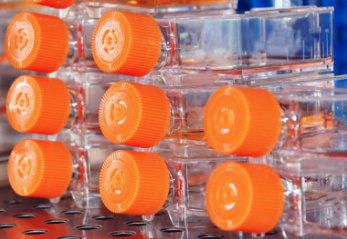
Supplies and shipping support for the JHU Community
Need help with your biospecimen shipment? Look no further! Our team is fully DOT/IATA trained and can provide you with everything you need to ship your samples within the US and abroad.

Shipping Boxes

Need a box? We sell ThermoSafe brand bioshippers for shipping all over the world. Small, medium, and large sizes are available for purchase via the JHU iLab system.

Shipping Advice

Have questions about how to ship your samples? We’re here to help!
Our staff can guide you through all the steps needed to get your shipment delivered safe and sound.

Material Transfer Agreement Help

We work directly with Johns Hopkins Technology Ventures and can guide you through the necessary steps of organizing Material Transfer and Licensing Agreements.

Biospecimen Shipment Service

ONLY FOR BIOBANK CUSTOMERS
If you already store with us in the Johns Hopkins BioBank, we can organize, pack, and ship your samples for you.
We will handle everything!

Cell Line Distribution

Let us do the work of distributing your cell line to collaborators! We grow, maintain, and distribute your cell line on your behalf.

Dry Ice
Need dry ice for your frozen shipment? We offer self-service dry ice purchasing by the pound.
dry ice purchasing
Location
Johns Hopkins East Baltimore Medical Campus
600 N. Wolfe Street
Blalock Building, Room 1001A
Baltimore, MD 21287 USA

Hours
Monday through Friday
9:00 AM – 5:00 PM
Last FedEx Daily Pickup:
4:00 PM

Contact
Phone: 410-955-3320
Technology Transfer
All incoming and outgoing material through Hopkins must have an associated material transfer agreement. Please click on the icon below to complete the electronic questionnaire and a member of the Johns Hopkins Technology Ventures team will be in touch with you.
Questions? Contact the JHTV Team at:
Common Transit Times

Guidelines and Policies
The Johns Hopkins BioBank & Cell Center abides by the highest scientific and ethical standards to preserve the public’s trust as well as preserve and protect the specimens when distributing to others. We require that distributed specimens have no Personally Identifiable Information (PII). All shipped specimens should be coded and the link to required PII be supplied independently to the recipient.
All investigators must utilize written agreements to document shipping and sharing of human biospecimens via the JHU Technology Transfer Office. Written agreements for the transfer of biospecimens to commercial laboratories for diagnostic or other routine analysis take different forms and may depend on whether the entity is a for‐profit or private organization.
Packaging and shipping of human biospecimens must conform to all applicable regulations and standards, including the U.S. Department of Transportation and International Air Transport Association standards. All personnel involved in shipping biological materials are fully trained for both air and ground shipments. Currently, our bioshipping services are only offered to our GRCF customers.

